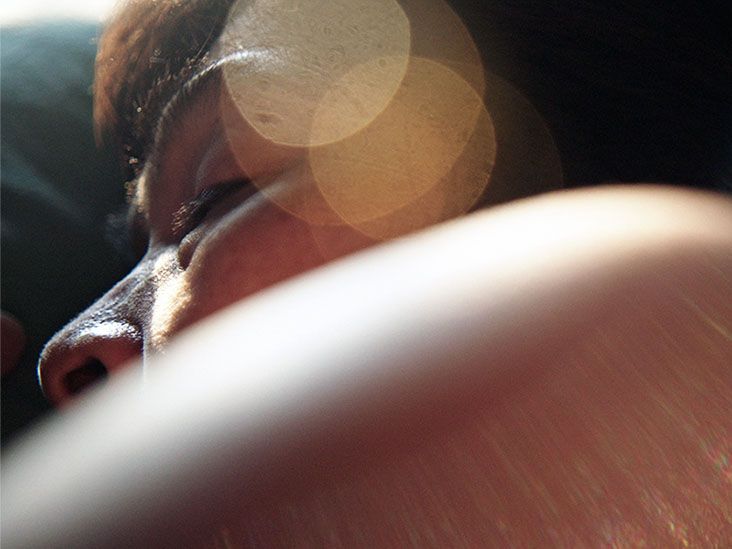Schizophrenia can cause both positive and negative symptoms. Positive symptoms refer to experiences that are added to reality, while negative symptoms refer to those that are absent.
Schizophrenia can cause a variety of symptoms. Mental health professionals typically categorize them into positive and negative symptoms.
Positive symptoms refer to experiences that are in addition to reality, like hallucinations and delusions.
Negative symptoms refer to symptoms that are absent from a person’s typical emotional landscape, such as lack of motivation, interest, or social functioning.
While it is possible to have schizophrenia without negative symptoms, at least one positive symptom of schizophrenia is necessary to receive a diagnosis.
Learn more about positive and negative symptoms of schizophrenia, how they present, and the symptoms of relapse.
Negative symptoms can appear as a reduction or absence of typical behaviors in people living with schizophrenia. This may take the form of a lack of motivation, communication, interest, emotion, and social functioning.
Not everyone with schizophrenia will experience negative symptoms. It is possible for a person to receive a diagnosis of schizophrenia without negative symptoms.
For a diagnosis of schizophrenia without negative symptoms, a person may meet diagnostic criteria on the basis they have experienced two or more of the following criteria (including at least one of the first three) for a significant portion of a 1-month period.
- delusions
- hallucinations
- disorganized speech
- grossly disorganized or catatonic behavior
People living with positive symptoms of schizophrenia may experience:
- Hallucinations: seeing, hearing, or feeling things that are not really there (Hearing voices is the most common form of hallucination.)
- Paranoia: feeling irrational suspicion or mistrust of others
- Delusions: a persistently held belief despite evidence to the contrary
- Disorganized speech: switching conversation topics with no obvious link, saying things that don’t make sense to others, incoherence
To receive a diagnosis of schizophrenia, a person must experience at least one symptom of hallucination, delusion, or disorganized speech for a significant portion of time during a 1-month period.
As these are all regarded as positive symptoms of schizophrenia, it is not possible to have schizophrenia without at least one positive symptom.
Not everyone with schizophrenia will experience the same type of positive symptoms to receive a diagnosis.
Negative symptoms can have a significant impact on daily life for those living with schizophrenia. The symptoms may contribute to difficulty in daily functioning. They may also contribute to long-term disability.
Negative symptoms can be broken down into five key areas:
- Blunted affect: a reduction in the ability to express emotion
- Alogia: a reduction in the number of spoken words
- Asociality: a lack of motivation to engage in social activities, or a preference for solo activities
- Avolition: decreased motivation and reduced goal-directed activity
- Anhedonia: a reduction in the experience of pleasure
Not every person with schizophrenia who experiences negative symptoms will feel the same way. Symptoms may happen at any stage during the course of the illness. However, they are often the most commonly reported initial symptoms of schizophrenia.
In daily life, people who experience negative symptoms of schizophrenia may feel a lack of motivation or interest that can manifest in the following ways:
- slow movements
- reduced grooming habits
- neglect in personal hygiene
- changes to sleeping habits
- changes to body language
- lack of eye contact
- not speaking much
- relationship difficulties
- withdrawing from others
- reduced interest in usual activities or hobbies
- problems with setting goals
- difficulties with making plans
- low sex drive
- difficulties with memory
- difficulties concentrating
- problems with decision making
- difficulties absorbing information
Many people with schizophrenia may experience relapse. Research suggests up to
Symptoms that may indicate relapse include:
- feelings of fear
- feeling depressed
- feeling helpless
- feeling suspicious
- worrying about the motivations of others
- difficulties concentrating
- periodically hearing quiet voices
- loss of appetite
- feeling stressed
- feeling anxious
- disruptions to sleep
It is possible for a person living with schizophrenia to experience delusions but not hallucinations.
According to the diagnostic criteria of schizophrenia, a person does not have to experience both delusions and hallucinations to receive a diagnosis.
It is possible a person living with schizophrenia may experience delusions and hallucinations at the same time, but it is also possible a person may experience only delusions and no hallucinations, or no delusions but hallucinations.
For some people living with schizophrenia, delusions and hallucinations are closely linked. Some people may develop a delusional idea to help them explain a hallucination they might be experiencing. As an example, if they hear a voice that details what they are doing, a person might develop a delusion that someone is watching them and their movements.
Not everyone with schizophrenia will experience hallucinations, just as not everyone will experience delusions.
Under the diagnostic criteria, it is possible to receive a diagnosis of schizophrenia without experiencing delusions or hallucinations at all.
Schizophrenia can cause both positive and negative symptoms. Negative symptoms refer to emotional experiences that are absent in people with schizophrenia, such as a lack of motivation or interest. Not everyone with schizophrenia will experience negative symptoms.
Positive symptoms refer to experiences that are added to reality, like hallucinations, delusions, and disorganized speech. To be diagnosed with schizophrenia, a person must experience at least one positive symptom.

